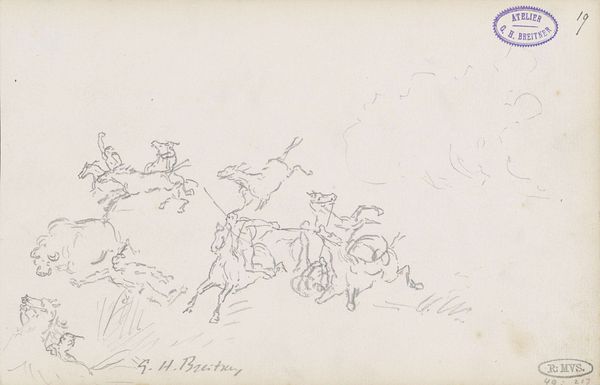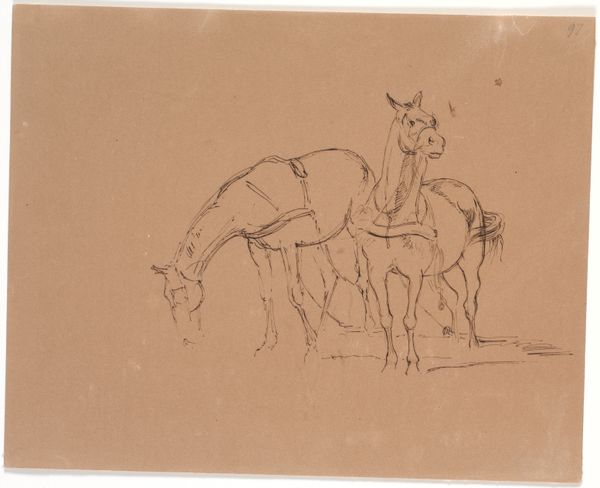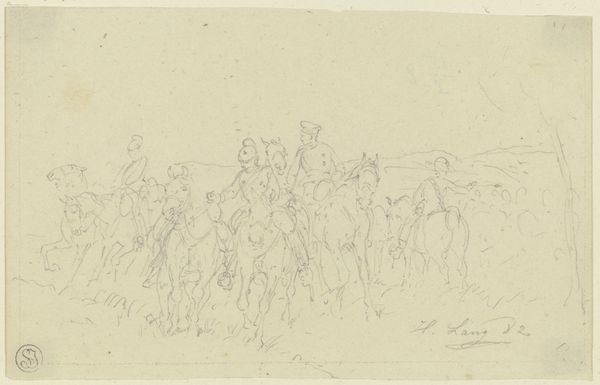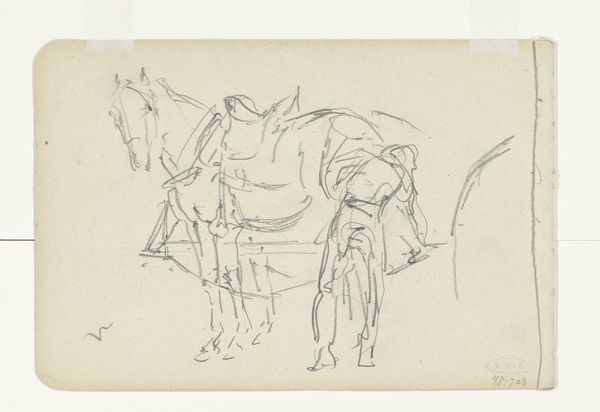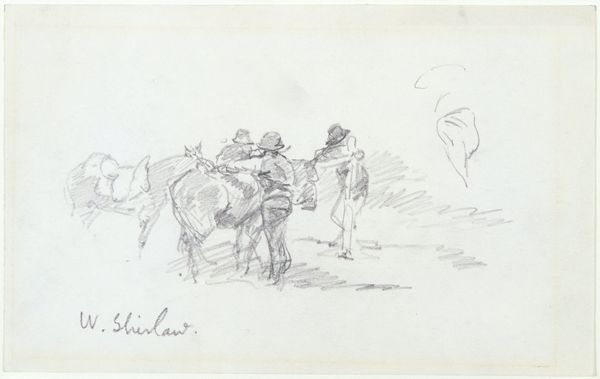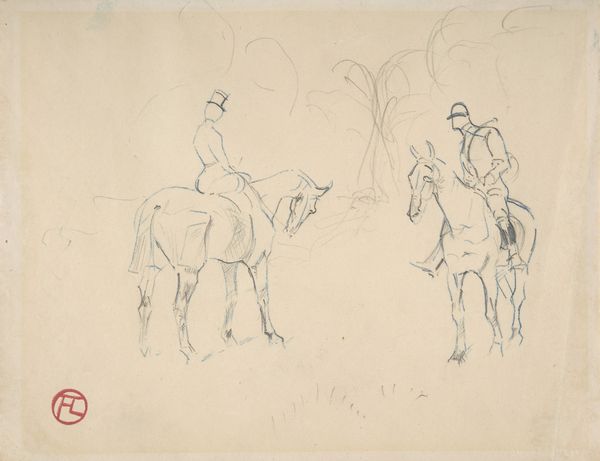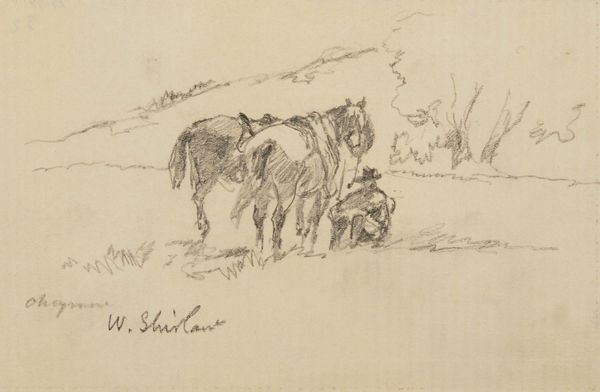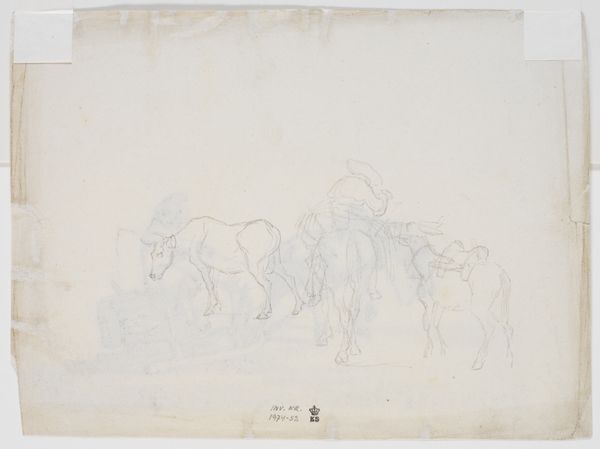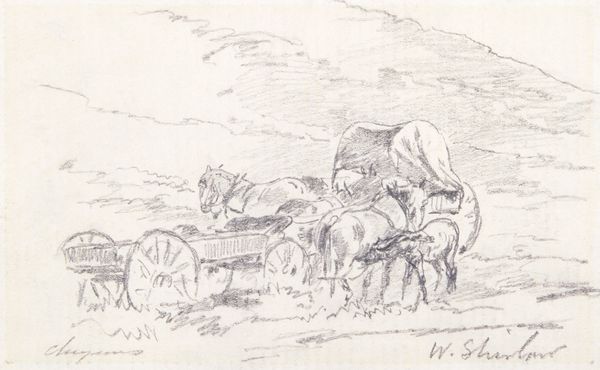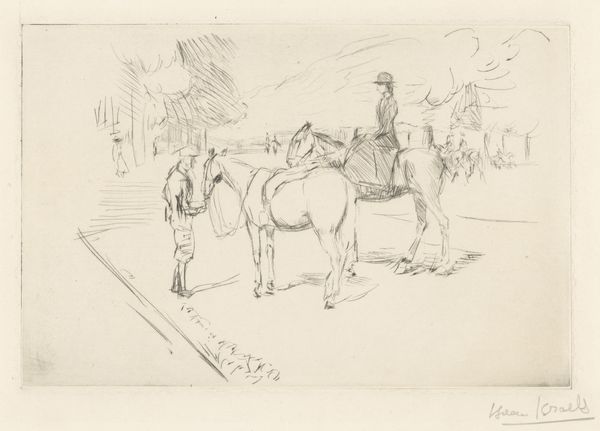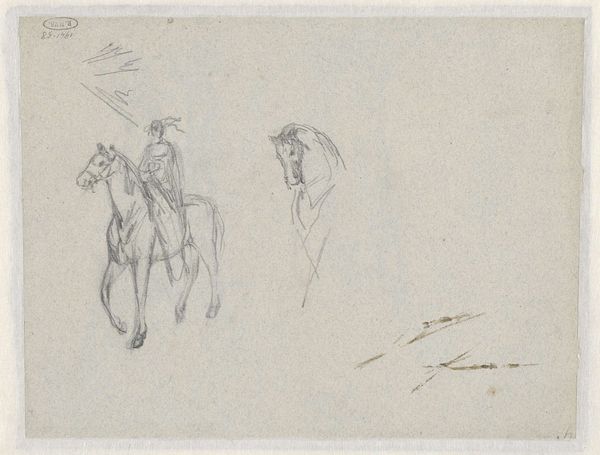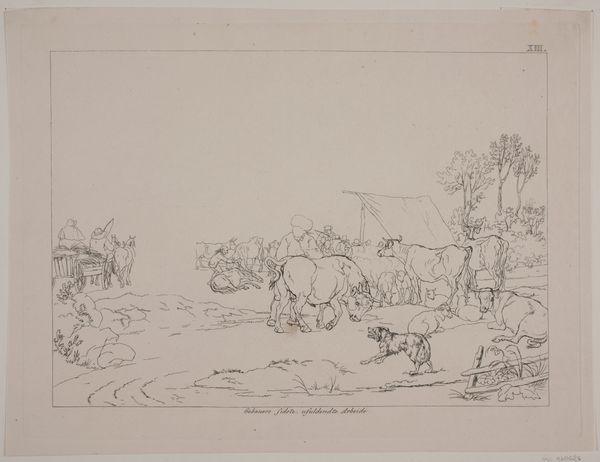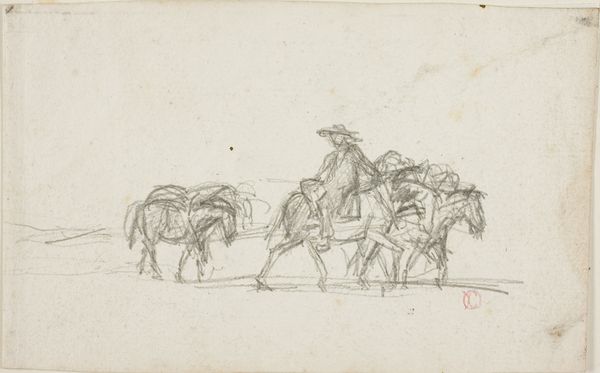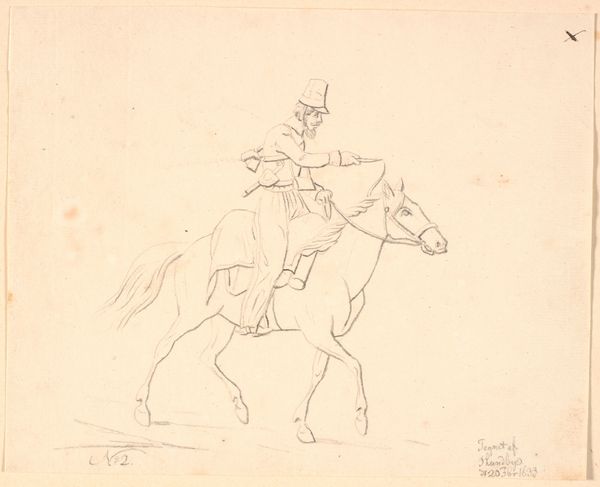
drawing, ink
#
drawing
#
landscape
#
etching
#
ink
#
realism
Dimensions: 214 mm (height) x 265 mm (width) (bladmaal)
Curator: This is Johan Thomas Lundbye’s “Ploven vender,” or “The Plough Turns,” an ink drawing from 1847, now held at the SMK. Editor: It’s remarkably sparse, almost ghostly. The lines are so fine, creating a delicate, somewhat melancholic scene of rural life. The horses appear to be dissolving into the landscape itself. Curator: Lundbye was a key figure in the Danish Golden Age, very interested in depicting the Danish landscape and folk life as authentic expressions of national identity. This work speaks to the romanticized view of the rural idyll during a period of significant social and political change. Editor: I find the horses particularly fascinating. There are two, and the artist suggests that their combined symbolic value may allude to some traditional notions. Could these harnessed horses carry symbolic links to concepts like diligence and duty, crucial for national pride, even though Denmark faced a period of transition at that point in time? Curator: It's a possible argument, but I see the image functioning more directly to romanticize labour. Rural work was a topic which at that time was at odds with growing industrialization and urbanization. Remember, that these idyllic pictures mask the labor reality of peasants at the time. Editor: Indeed, and perhaps the lack of color adds to the almost ethereal quality, removing it from the dirt and toil. What about the positioning of the plowman, his gaze? What might this convey? Curator: That is the detail of the sketch that really stands out; that placid, almost neutral, gaze directing the team forward, he embodies both an ideal of diligent, modest labor, and is evocative of Danish farmers during a very troubled time for Danish nationality. The elite class wanted such scenes, while life realities for many folks would have been totally different. Editor: It truly seems to encapsulate a yearning for a simpler, perhaps imagined past, a potent symbol within its cultural moment. Thank you for expanding my reading of those iconic connotations. Curator: My pleasure. Examining art through history always reveals these complex interactions between representation and the societal moment.
Comments
No comments
Be the first to comment and join the conversation on the ultimate creative platform.
